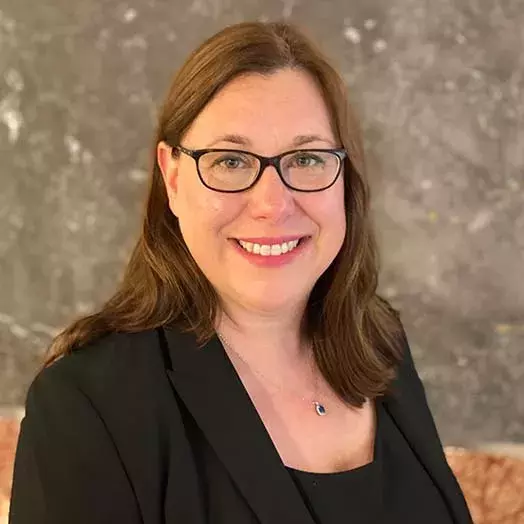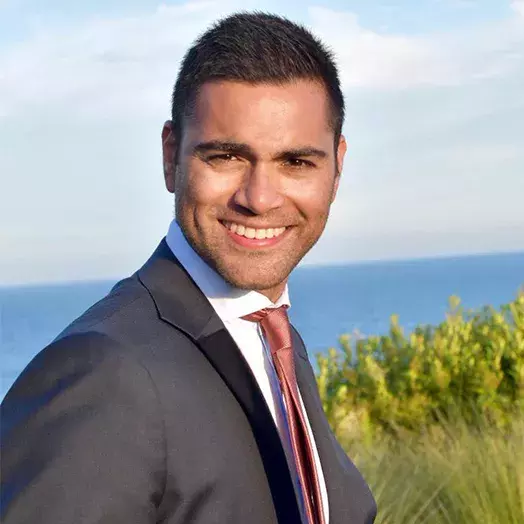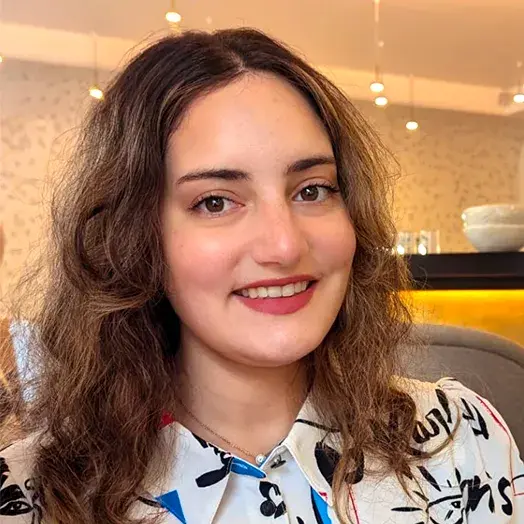Suzanne Rybczynski used her Carey MS in Health Care Management to transition from physician to associate chief medical officer. Her advice to aspiring medical leaders: “You miss 100% of the shots you don’t take.”

Q&A: Associate chief medical officer uses Carey MS in Health Care Management to lead through pandemic
Suzanne Rybczynski is associate chief medical officer at Kennedy Krieger Institute, faculty member at Kennedy Krieger Institute and an assistant professor of pediatrics at the Johns Hopkins University School of Medicine.
With an impressive list of appointments as a medical professional, she used her Carey Business School MS in Health Care Management to grow from physician and faculty to leading hospital administrator.
What to Read Next

Article
Alum leads health care innovations at Cardinal HealthWhy did you decide to go back to school for your master’s and why did you choose Johns Hopkins Carey Business School?
As a physician since 1995, I felt confident in my medical skills but wanted to enhance my business of medicine knowledge. I wanted to better serve my organization in administration. I had participated in a Kennedy Krieger Institute-sponsored leadership development course at Carey Business School a few years ago. I was impressed with the faculty and educational possibilities. Once I decided that I wanted to pursue a business degree, there really was no other option for me but Carey.
What skills or knowledge from your master’s have you been able to apply to your work?
The more I learned at Carey, the more I was able to apply it directly to my job as associate chief medical officer. Here is my favorite example: When the pandemic struck, I was taking Operations Management at Carey. My leadership named me COVID-19 Task Force Leader for our organization. I was immediately thrust into a real-life situation in which I had to apply abstract knowledge from Operations Management to manage operations in a crisis. I don’t think I would have been as successful or confident without my Carey education.
Along with practical business management tools, learning communication and leadership skills has been invaluable and directly applicable to my role as associate chief medical officer
How did you navigate transitioning from a leadership role in your day job to a student role in your classes?
On days when I had class, I was lucky to be able to schedule a transition time from work to education. Sometimes, I had to simultaneously address emergent situations during classes. My Carey professors were always understanding and supportive, especially during the pandemic.
The Daily Record honored you in their 2021 list of Maryland Top 100 Women. What advice do you have for other women looking to make the leap from practitioner to associate chief medical officer?
I would say the best way to start is to volunteer for medical staff committees and administrative positions that become available. That will drive reputation building and [earn you] recognition. I think the best advice for big career moves comes from Wayne Gretzky who said, “You miss 100% of the shots you don’t take.” Don’t underestimate your skills or readiness—sometimes you just have to make the leap.


